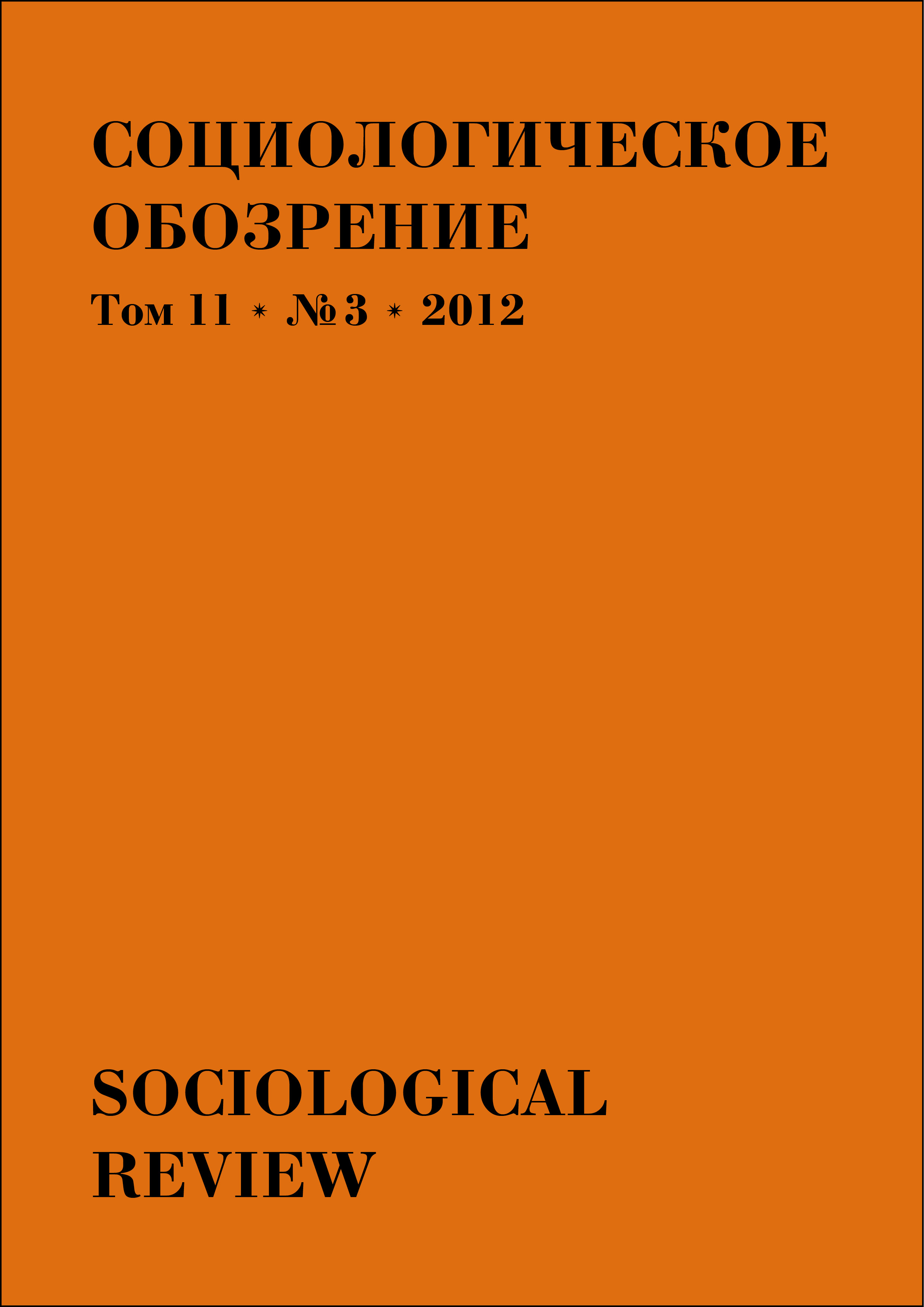Corruption — a return of the «old world» in modern age?
Abstract
In the paper a phenomenon of corruption is explored. Author provides arguments against the view that corruption is only typical of societies that did not transit to modernity or are still in process. According to this view, corruption is caused by cultural peculiarities or mentality. Author criticizes those sociological theories that explicitly or implicitly imply a model of an ideal society. In this model corruption is an evolutionary relic or pathological deviation. The author describes this way of theorizing as “theories of insufficiency”. In particular, he considers the advantages and disadvantages of a rational choice theory, a model of the principal-agent relations, a structural-functional perspective and modern system theory. He describes corruption as a form of authority at the intersection of various subsystems and argues that in order to study and understand classical and modern forms of corruption, one needs to look at its interconnections with structures of modern society and communications about corruption. Author comes to the conclusion that corruption, as a specific phenomenon typical of developing and transitional societies, should be challenged both from empirical and historical perspectives. This argument does not take into account institutional and cultural borders of liquidity and relations which emerge as a result of short term economic interests of transnational companies and corporations, and the aspiration for enrichment of local elites. Corruption is a highly modern phenomenon in the sense that it uses the difference of functional subsystems for maximizing personal or collective advantages within a field of action.




